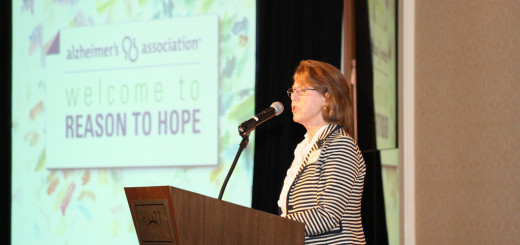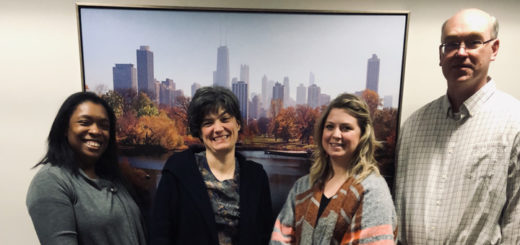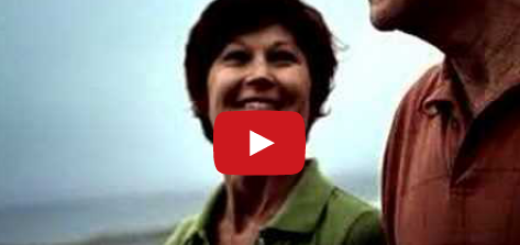Vallejo woman educates her community with entertainment
Vallejo woman educates her community with entertainment
When Teri Carlyle’s grandma, Rachel Daniels, was diagnosed with Alzheimer’s, Teri jumped into action to learn as much about the disease as she could. Teri has found that combining entertainment with education is an effective way to raise awareness.
A strong woman
Rachel Daniels was a strong woman who had no fear at all. Not only did she raise nine children, but she helped raise her nieces and nephews as well.
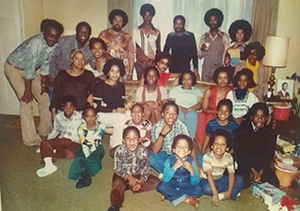
She was the type of woman you didn’t mess with. Teri shares an example of her grandmother’s strength. “My grandfather, an awesome man, put some money on a game and lost it. My grandmother went to the store and started bustin’ windows and bottles. She told them never to take her husband’s money again, and they didn’t.”
Officially diagnosed in 2015, Rachel was able to remember her family up until the end. “She knew all of her kids,” said Teri. “She might get her kids mixed up (something she did before Alzheimer’s), but she knew them and she knew her grandchildren.”
The day before Rachel died in 2019, she told a church member, “Tell my family I love “˜em and I did the best I could.”
Learning about the disease
It was her grandmother’s diagnosis that spurred Teri into action. “This is some spooky stuff,” said Teri. “I knew I needed to learn more about this.
“I found out about the African American Forum and once I went to that I thought, “˜I need to tell my family. Y’all need to come to get this information.'”
The following year, both of Teri’s siblings, her niece, nephew and sister in law attend the forum. “We saw how my aunts and my mom dealt with Grandma and we didn’t want to duplicate that,” said Teri. “We have to plan this thing out. Dad and Grandpa are fine right now, but you never know. We have to educate ourselves on this disease because we don’t know what the end may bring.”
Educating her community through entertainment
In Teri’s quest to educate her community, she noticed that sometimes people are scared to talk about any disease, but especially Alzheimer’s. “I was trying to figure out a way to get people to want to come and listen,” said Teri. “I know that I like music and spoken word, so I decided to do a PB&J’s – Poetry Bands and Jams Session event.”
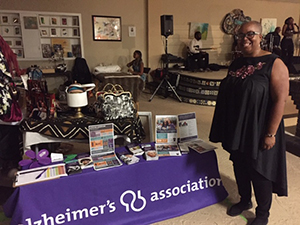
In September 2019 Teri hosted her first fundraiser. She had a live band, a few singers, some spoken word artists and a dinner. “It was the perfect night,” said Teri. “My goal was to get them in the door and him “˜em with a little knowledge and then entertain them.”
In addition to providing resources for her friends and family, Teri raised over $600 for the Alzheimer’s Association.
Supporting the cause
Alzheimer’s disease is the 6th leading cause of death in the United States. Older African Americans are two times more likely to develop dementia than older whites and are less likely to receive a diagnosis.
Knowing this information, Teri wanted to help out in any way she could. She signed up for Walk to End Alzheimer’s, went to Advocacy Day and also joined the Black Alzheimer’s Association Advisory Council (BAAAC).

Feeling empowered
The BAAAC’s aim is to empower the community with information and resources. “Knowledge is power,” said Teri. “We cannot do this alone and we have to get this information to the people.
“It’s great if you have support, but we need to be talking about this. Memory care places are not affordable for most of us. People need to know how to take care of themselves and understand the disease.
“The sooner you get the tools on how to deal with the disease the better off both you and your loved one will be.”
Being on the council makes Teri feel empowered. “I love the camaraderie of being a part of the council,” shares Teri. “I like helping the community. Sometimes we are forgotten and it’s good to know that while the disease is different for everybody, it’s also the same.”
Encouraging others to participate in research
Teri encourages people to sign up for an Alzheimer’s research studies. “There is an understandable fear about clinical trials because of what has been done to black folks in the past.
“But now we’re not included in the research because we’re too scared to be in any trials. We need to be included; otherwise how will they know what works for us?”
There are several types of studies, including ones that are just involve surveys and those for healthy older adults or caregivers. Teri suggests that if you’re nervous about signing up for a trial, you look for one that monitors your lifestyle over time.
“This disease isn’t going anywhere,” says Teri. “We need to have information and tools. We need to be on the lookout for signs [of Alzheimer’s]. We need to be prepared, because the sooner you understand the disease the better off you’ll be.”
Interested in participating in Alzheimer’s research? Find out more at alz.org/trialmatch.
This year’s African American Forum will be held on April 18, 2020 in Berkeley, CA. Click here for more information.
Learn more:





